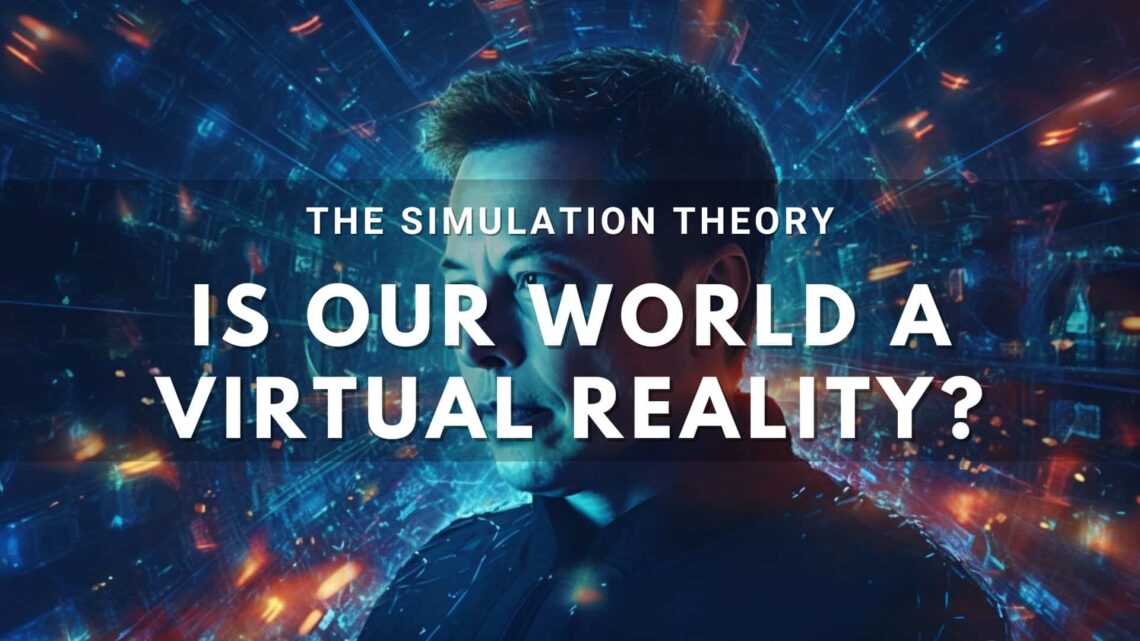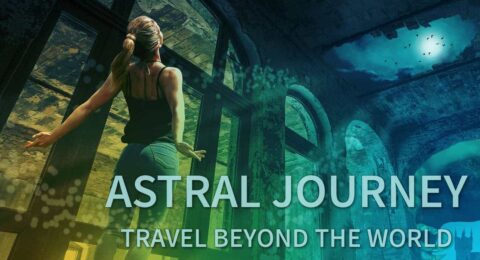
The Simulation Theory: Is our World a Virtual Reality?
An analysis of the Simulation Theory for Beginners: Is our World a Virtual Reality?
Welcome to a fascinating journey into the depths of simulation theory! In recent years, this theory has fascinated scientists, philosophers, and the general public alike. The question of whether our world is possibly a virtual simulation or virtual reality has led to abundant discussion and speculation. In this article, we will explore the foundations of simulation theory, examine its connection to science and technology, and discuss the philosophical implications of this idea.
Simulation Theory: A fascinating look at our Digital Universe.
The basics of Simulation Theory
Simulation theory is a hypothesis that states that our reality is actually a complex simulation created by an advanced otherworldly civilization – similar to a perceived reality through VR goggles. This civilization that created this simulation, often referred to as “posthuman” or “superintelligent” beings, would possess technology so sophisticated that it is capable of creating a detailed virtual reality that is perceived as “real” by the conscious beings that exist within it.
The simulation theory was first created by people with mediumistic abilities who clearly perceived this fact and reported about it in books or interviews. They explained that our entire reality is the product of an advanced otherworldly intelligence that has created a complex virtual world. Therefore, these perceptions find their origin in various perceptions of medially gifted people and later paved its way to philosophical and scientific debates dealing with the nature of reality and the question of what is “real”. We will take a look at the arguments in favor of the possibility of simulation and explore examples that capture our imagination.
The arguments in Favor of Simulation Theory
There are several arguments made by supporters of simulation theory. First, they point to the rapid development of computer simulations in our own society and conclude that even an advanced civilization might be able to create a highly realistic virtual world. Furthermore, the discovery of regularities and patterns in nature is interpreted as an indication that our reality could be based on an underlying algorithm. To this end, there are also some scientists who declare that the basis of our reality and that of the entire universe has many typical features for the existence of a simulation.
Elon Musk’s support for Simulation Theory
Elon Musk, the well-known billionaire entrepreneur and technology visionary, has expressed his support for simulation theory several times in the past. In interviews and public appearances, he has emphasized that, in his view, the likelihood that we live in a “real” reality is extremely low. He argues that given the advances in virtual reality and the rapid development of AI systems, the possibility of advanced simulation is very plausible.
After all, it can be assumed that there are certainly civilizations out there in a universe of trillions and trillions of suns and planets that are thousands of years ahead of ours in computer technology. How likely is it, just by the great interest of the earthly population in computer technology, that an entire universe could be programmed and “players” could participate in it? What if such a universe simulation could also be entered with amnesia, i.e., the participant in the simulation temporarily turns off his memories of where he came from, who he really is, and that he is in a game, to deepen the enjoyment and reality of the simulation?
Criticism and Controversy about the Simulation Theory
So, after the people gifted by media had clearly perceived that the universe is a simulation controlled by a sophisticated computer and then this was defined as a hypothesis by the philosophers and thinkers, meanwhile, of course, critics and controversies exist in connection with the simulation theory. Some argue that it is difficult to provide definitive evidence for the existence of such a simulation. Others point out that simulation theory falls into the realm of metaphysics rather than empirical science and is therefore difficult to test.
A key point about simulation theory lies in the philosophical implications it carries. The question of consciousness, individual experience, and ethics in a simulated world presents us with challenging considerations. Are we self-aware actors or merely puppets in a larger game? What ethical questions arise when the creators of a simulation determine our fate?
The church also opposes the existence of simulation theory, which, given the mediation of a religious God, may not be a matrix architect or game programmer. For the reason, the church conveys the consideration of the simulation theory as reprehensible and morally indefensible.
But these counter-arguments are in reality no arguments, but only ethical concerns and the hasty dismissal of the simulation theory into the esoteric drawer. Actual counter-arguments have not been delivered by natural science so far. This is partly due to the fact that the world view conveyed by the natural scientists would collapse for mankind and one does not know what consequences this would have for the economy and the agendas of politicians and billionaires.
The Effects of the Simulation Theory on our World view
Regardless of the truth of simulation theory, it already has a fascinating impact on our worldview. It challenges us to rethink our notions of reality and consciousness. Even if we are in a simulation, it does not change our subjective experience and our pursuit of knowledge and meaning.
Simulation theory is undoubtedly one of the most fascinating and controversial ideas of our time. Although its proof is difficult, it stimulates our imagination and opens up new questions about the nature of our existence. The support of prominent figures such as Elon Musk has helped to increase interest in this theory. Whether we are in a simulation or not, discussion of simulation theory enriches our engagement with the big questions of life and invites us to expand our view of reality.
Simulation theory, and viewing the world as a virtual reality, is obviously an extremely intriguing hypothesis that encourages us to explore the limits of our reality. Although the question of whether our world is a simulation continues to be controversial, it has already sparked important discussions in various fields. Whether one is an enthusiastic supporter of this theory or skeptical of it, simulation theory offers us the opportunity to reflect on our existence and unleash our imagination.
Recommended Links:
The Youtube Channel of the Matrixxer that is bult up on the Simulation Theory (in english and spanish)
Blog Post: “Are you living in a virtual reality?“





